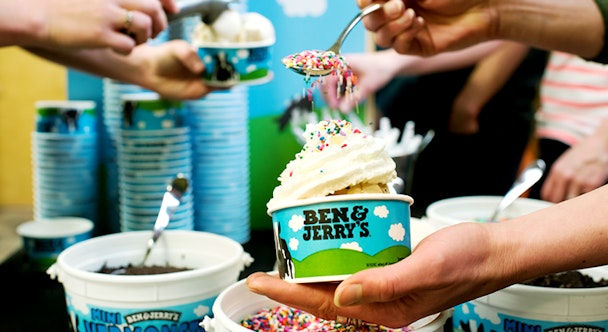Unilever to vet publishers with greater ‘rigour’ as digital clean up continues
As it continues on a march to extract value from its online media buys and combat ad fraud, Unilever has revealed it’s about to get a whole lot stricter when it comes to vetting the publishers it works with.

The brand eventually wants to see “most” of its digital ad spend to be made through this protocol
The Dove owner has unveiled an initiate it’s calling ‘Unilever Trusted Publishers’ which will see it work closely with a network of approved global, regional and local online publishers as well as platforms so the business can gain “more control and greater visibility” over where its ads are placed.
To become accredited as one of the FMCG group’s trusted partners, publishers will have to meet “strict vetting criteria”. During this process, Unilever will scrutinise their standards around the following issues: ad fraud; brand safety; experience; traffic quality and ad formatting.
Outgoing chief marketing officer Keith Weed announced the move at the World Federation of Advertisers’ annual conference on Thursday (26 March). It forms part of a wider Responsibility Framework he launched last year for the brand.
The company hasn’t been clear on what the initial screening process looks like for would-be trusted publishers, nor what tools or procedures it will use to complete these checks. However, has been explicit in that to meet its new standards publishers will need to go beyond its existing ‘three Vs’ principle – which is focused on building trust between brands and publishers via viewability, verification and value.
When asked, Unilever declined to reveal which publishers had already been approved to the scheme.
The brand eventually wants to see “most” of its digital ad spend (which currently takes up a 40% slice of its $8bn budget) to be made through this protocol with the help of its media agency partners.
'Bots don't buy Ben & Jerry's'
Weed, who has been outspoken on the need for platforms, publishers and brands to each play their role in cleaning up the digital ecosystem, said the Unilever Trusted Publishers scheme would “add more rigour” to how Unilever advertises online.
“Now is the perfect time for Unilever to build on the efforts and progress we’ve made so far in the last twelve months in cleaning up the digital ecosystem. We’ve been clear for years about what we want to see online – more consumer trust through greater publisher transparency, more effective use of time and money, and better online experiences for everyone,” he added.
“Online advertising credibility is still a global, industry-wide problem and as the world’s second largest advertiser, we have a responsibility to use our scale and influence to address this issue.”
With the second largest advertising budget in the world, the issue of marketing investment being lost to ad fraud is one of Unilever’s key concerns when it comes to online transparency. Its closest rival P&G agrees, as do a multitude of other household brands clamouring to take action.
Massachusetts Institute of Technology (MIT) recently suggested that nefarious actors profit to the tune of $20m per month from ad fraud. The WFA estimates it will have cost businesses $50bn in total by 2025.
To this point, Weed said: “We want to know that real people, not robots, are enjoying our ads – bots don’t eat a lot of Ben & Jerry’s. We will champion the good actors that help us in this while diminishing the roles of the bad.”
Unilever’s is launching the initiative amid a wider debate around whether publishers or brands need to take more responsibility for digital advertising’s misgivings. It also comes as the brand continues to bring some elements of its marketing in-house, reinvesting the savings into bigger media budgets.
This week, the WFA launched its own call for brands to put more pressure on online platforms when it comes to brand safety specifically.

